Share
Text and Images K. Arumugam
When I entered the sprawling National Stadium campus before it was renamed after the hockey wizard Dhyan Chand, it seemed I was late. The morning practice under the watchful eyes of Balkishen Singh was over. The players were scattered and just two were resting on the verdures adjacent to main turf.
These were Jude Felix and Dhanraj Pillay. The latter was a well known face while the former was a relative newcomer, having spent barely two years on the international circuit.
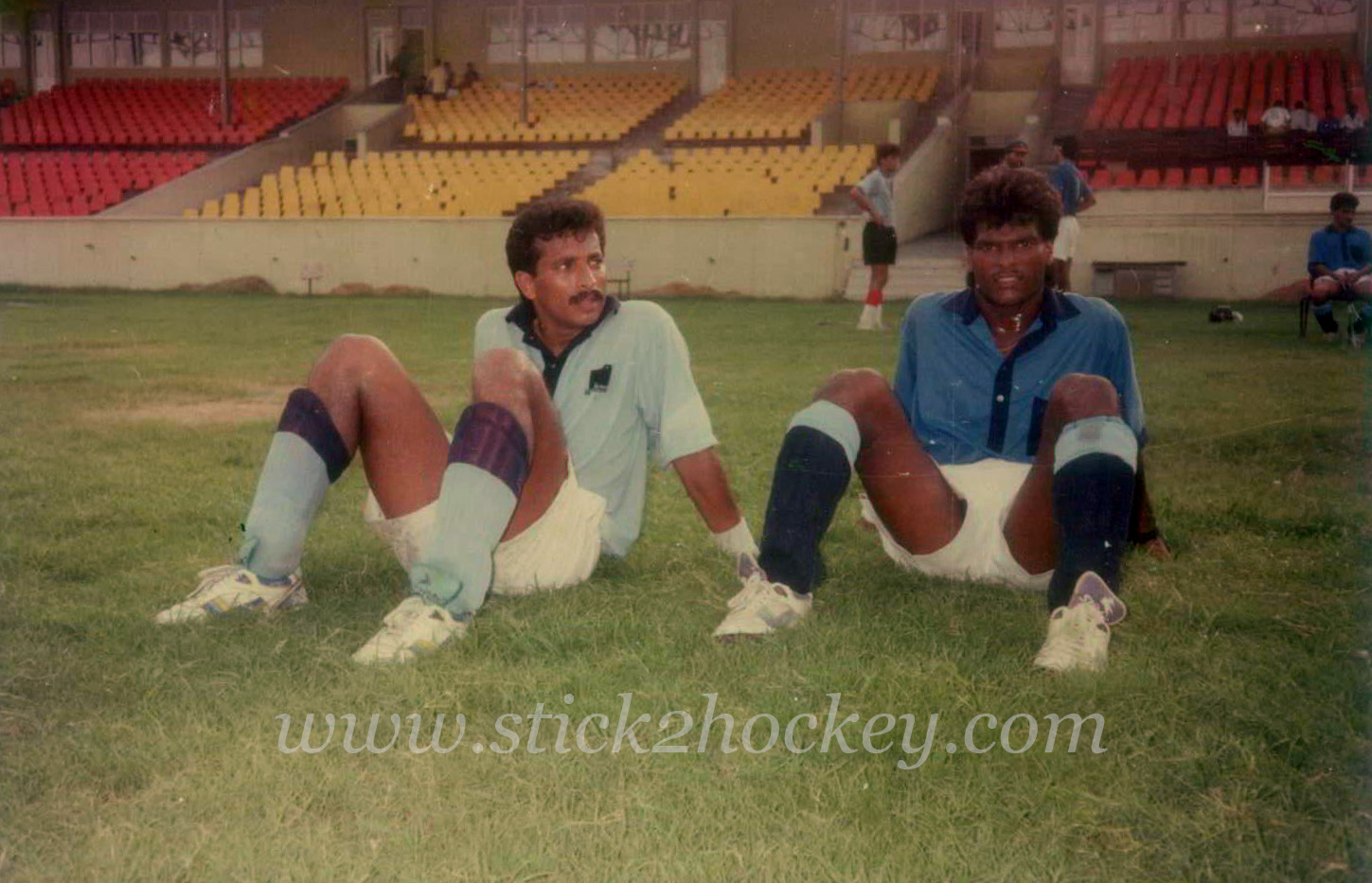
Jude Felix (l) and Dhanraj Pillay, 1991
The team was preparing for the Sultan Azlan Shah Cup. Having spotted at least two players, I did not want to miss the opportunity. I rushed to them with my tape recorder in one hand and asked the first question to Jude Felix moving as close to him as possible.
Felix, took another gulp of water, almost broke into a smile before saying, “First tell me, who are you?”
It was my first interview of a national level player of his stature. I know him but, it struck me, there was no way he would have known me.
“Jude waved me off when I took a snap of both moments earlier, perhaps he would have thought me to be just another fan. I took it that way. Having started on a wrong note, I experienced one of those bad days in my early phase of journalism that day.
My questions, ex tempore, were so mundane and perfunctory, he had no difficulty in answering them all.
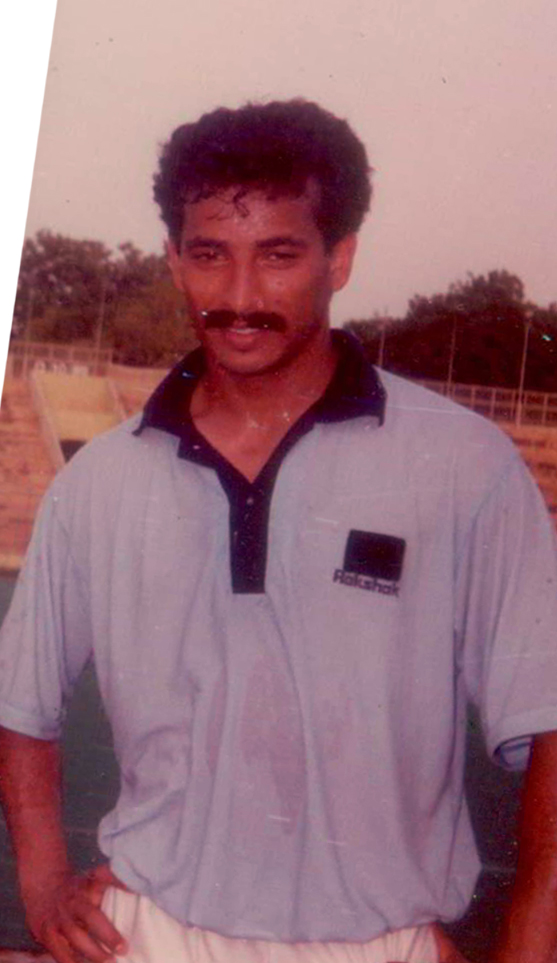
Jude Felix in 1992
The maturity and patience Jude Felix showed and the continuity of his conversation that day left an indelible impression. Luckily enough, Dhanraj Pillay chipped in to know whether I write for Tamil papers as well. I nodded, saying, “yes, Dinamalar”. He too joined the conversation and spoke very enthusiastically. Despite my poor start, the session went well, especially since I had achieved a ‘double’.
During those times, in the early 1990s, the entire team revolved around two personalities — Felix and Pargat Singh. Pargat was media savvy, brash and blunt while Felix was word-wise, sophisticated but crafty. Felix had just moved from the inside-forward position to centre-half and being the pivot, he initiated much of the play.
A few months later, India won the Sultan Azlan Shah Cup played in a round-robin format, beating Pakistan 1-0 with an immaculate goal by Mukesh Kumar. Few months earlier, they undertook a successful Europe tour, and were poised for another. The European Tour, a build-up to the Barcelona Olympics, was the focus. It turned out to be successful with India winning 12 of 15 matches.
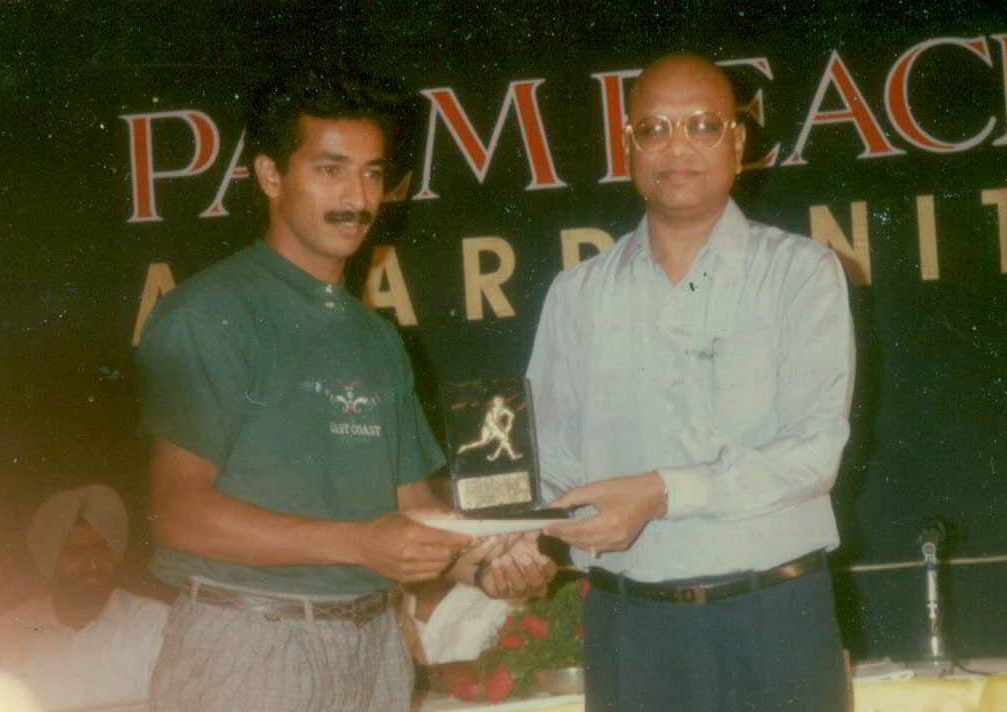
Jude receiving Best Player Award for GB test, 1992
The media hyped up the success which anyway helped bring an unprecedented high-end sponsorship from a distillery company, Chhattisgarh Distilleries Ltd. Their ‘Palm Beach’ brand presented hefty rewards at a function in Le Meridien hotel in New Delhi. Not since 1975 was a hockey team feted so grandly, one thought.
But all the grandeur turned out to be too-much-too-soon. Also, the manner in which the team was handled both by the IHF and the sponsors didn’t help the cause. Hyped-up India buckled under pressure in Barcelona, finishing seventh at the 1992 Olympics. MM Somaya in his signature column cited only Jude Felix and Shakeel Ahamed for playing to potential at Barcelona.
Pargat Singh announced the first of his several retirements and other stars like Jagbir Singh were dropped for unknown reasons. Chief coach Balkishen Singh was sacked and Zafar Iqbal succeeded him. His team visited South Africa for a Series and Austria for the Alps Cup.
The most important event in that phase was the Inter-Continental Championship, a qualifier for the Sydney World Cup. India fared well there to enter the semifinals and win a bronze besides qualifying for the World Cup. The nation’s mood was a bit upbeat and it seemed India was bouncing back after the Barcelona debacle.
However, Felix had other ideas. After Poznan, he moved to a foreign club in France. Dhanraj Pillay also joined him. The move drew ire from most administrators and Olympians. Even some questioned his patriotism, as if it was their preserve.
New coach Iqbal, preparing teams for the Hiroshima Asia Cup was as blunt as usual. He did not mince words or hide his disappointment on the matter. Some select news items of those times are given in the link: Jude Felix paper cutting.
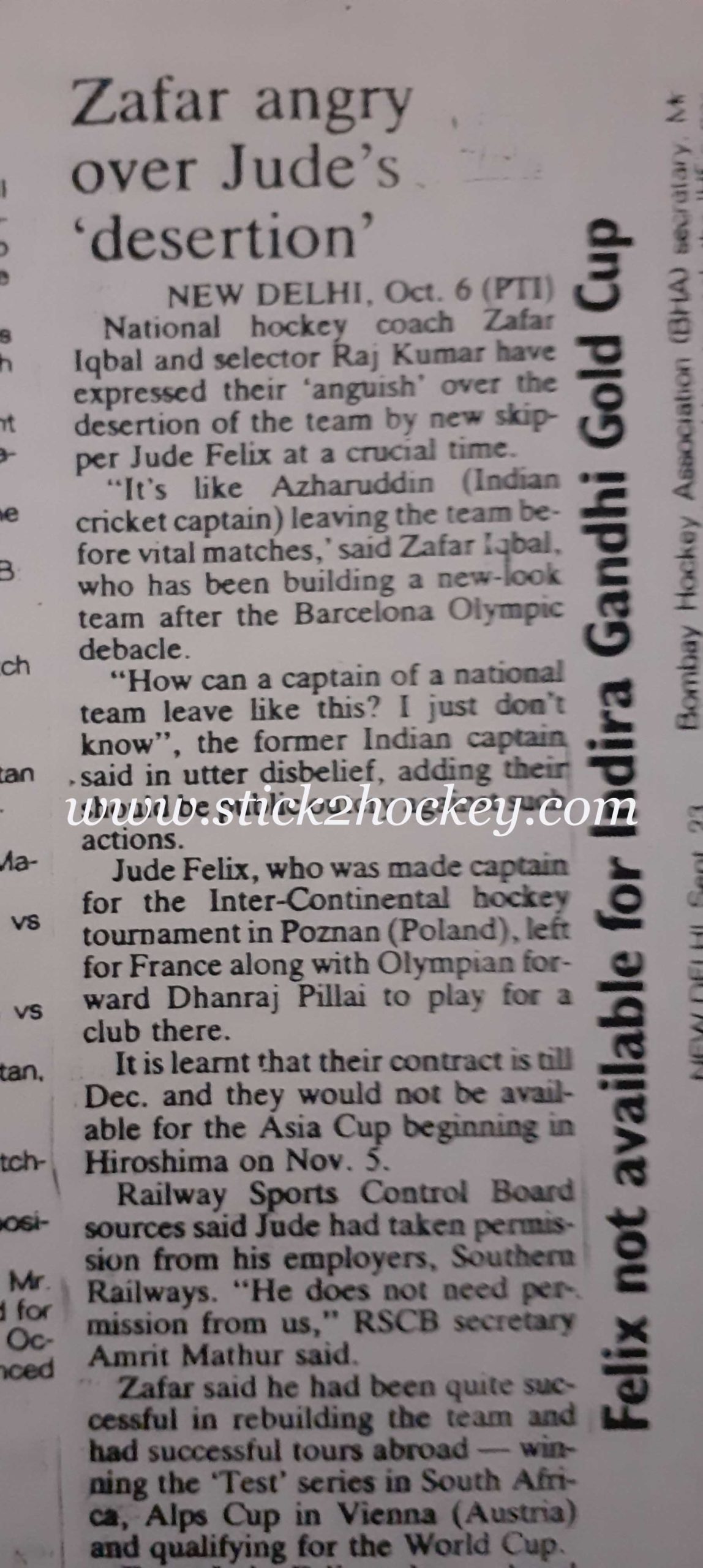
Hindustan Times, New Delhi
But mature and composed, Jude Felix was rooted in his move. There was no gag on players in those days and his interviews were all over the media. He made his position clear: What if you are ignored for the Asian Games and World Cup? He asserted that it was no big deal as he had other offers. When asked as to why he prefered overseas assignments over local engagements, Felix said that at the end of his devotion to hockey he had nothing to show (June 1993, The Hindu).
He uttered those words he said when he was a veteran of 12 years standing. While most of his peers retired, he maintained fitness, was in form and in demand. Those were the days players represented the country only for pride, their income being limited to government salary.
Thus, knowingly or unknowingly, Jude Felix sowed the seeds of semi-professionalism in Indian hockey. He was targeted and sought to be isolated in the eyes of the public, the kind of trauma a pioneer in any field has to endure.
His was perhaps the first move by any Indian player and it showed others the way. So many players these days travel to foreign lands, make a name for themselves, earn and live better. Something unheard of in the era Felix was an active player. Dhanraj Pillay of course did what he did together with Jude, in his entire career: Choosing Indian assignments.
Many notable writers of the day like John Crasto, Arvind Lavakare, Jagannath Rau and others supported Felix’s moves and his steadfast refusal to even play in the Asia Cup seemed to bring the curtain down his career once for all.
Shakeel Ahmed was chosen to lead the side in the absence of Felix. Sandeep Somesh took his position in the team. Pillay returned to join the team for the Hiroshima campaign. Though the federation and coaches accused him, when Felix returned after completing his first French assignment and then a stint in Malaysia, they were ready to take him back in the team. Such was his reputation and the administration’s magnanimity, unthinkable in the present times. The administration then was openly brash and abusive but by action was mostly harmless.
His name didn’t appear among the probables for the 1994 Hiroshima Asian Games released in July 2014, but Felix was included in the final camp. His captaincy was also restored. India had a wonderful Asiad but lost the final 2-3 to South Korea.
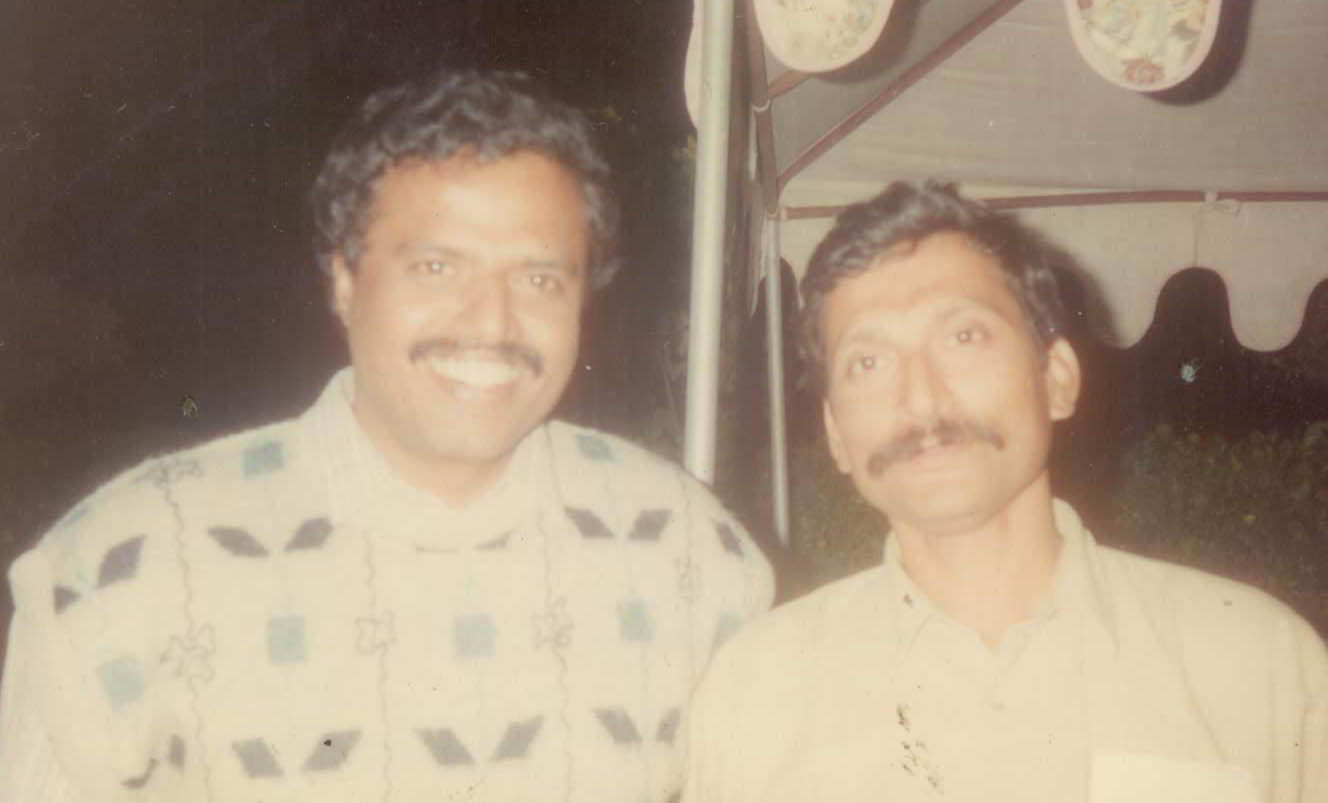
Coach Cedric D’Souza and Jothi Kumaran, then IHF secretary facilitated Jude’s comeback in late 1994.
Felix, in fact, has to thank providence for a change of guard in the IHF. His case and career received a shot-in-the-arm when the old guard in the federation gave way to the KPS Gill-Jothi Kumaran combine after the Bhopal elections in September 1994, a month before the Hiroshima Asian Games.
The new team was unbiased about the past and created an atmosphere for most players to return.
The first show after their election was the organization of Federation Cup in Jalandhar, which was construed as selection trials for Hiroshima. Felix was drafted into leading the Tamil Nadu team. He represented his employers Indian Railways but chose between them and his domicile state Karnataka up until then. However, the then IHF secretary K. Jothikumaran was on record saying that since Southern Railway is affiliated to Tamil Nadu, it’s right in the eye of the tradition to include Felix.
Railways CR Kumar, who rose to coach the women’s national teams of India and Malaysia, was also part of the Tamil Nadu team that played the Jalandhar Federation Cup. As merit would count, Felix was back for national duty and captaincy was also at stake for him to claim.
Such was his stature that nobody could have objected to him being given captaincy. After all, he led India to the silver medal at the 1994 Hiroshima Asian Games where South Korea coach Kim Sang Ryul and forward Park Shin Heum were at their best in the final which India lost by the odd goal in five. in that encounter, Anil Aldrin’s brace of penalty corner goals were nullified by the likes of Park Shin Heum.
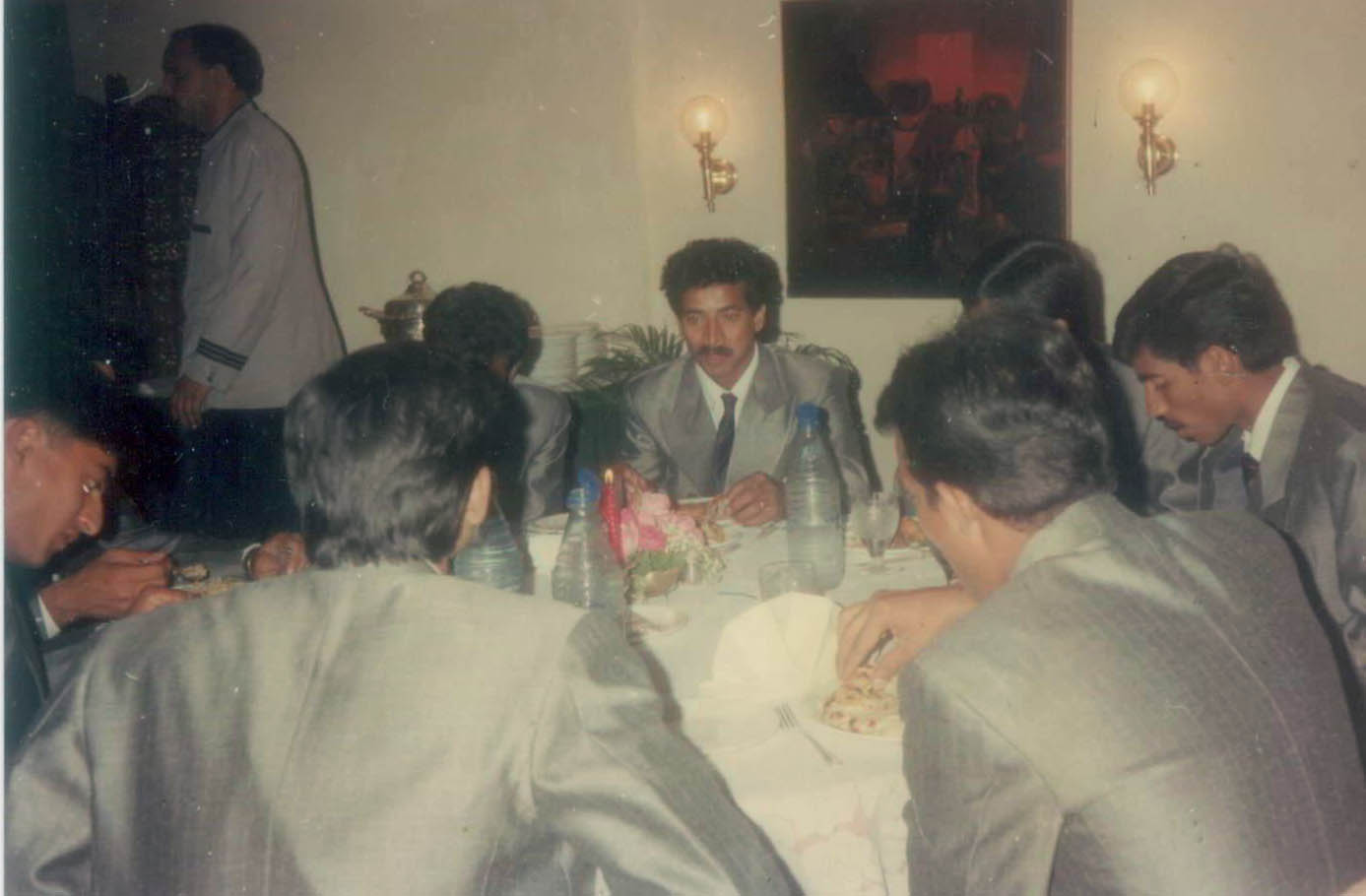
1994 World Cup team at a send-off gathering in New Delhi
The silver show, however, saw coach Zafar Iqbal being shown the way out. In came Cedric D’Souza. The team, devoid of many wonted trouble makers, surprised everybody at the 1994 Sydney World Cup.
The fifth-place finish the Jude Felix-Cedric D’Souza combo achieved is by far the best show at either the World Cup (title won in 1975) or Olympics since Moscow 1980 where India last won the Olympic gold medal.
Big sponsorship came in early 1995 when Sahara for the first time stepped into sports. The Indira Cup was renamed Sahara Cup with five latest brand cars lined up for individual awards! Felix led India to silver again, formidable South Korea again being the nemesis in the final witnessed by the then Prime Minister Narasimha Rao.
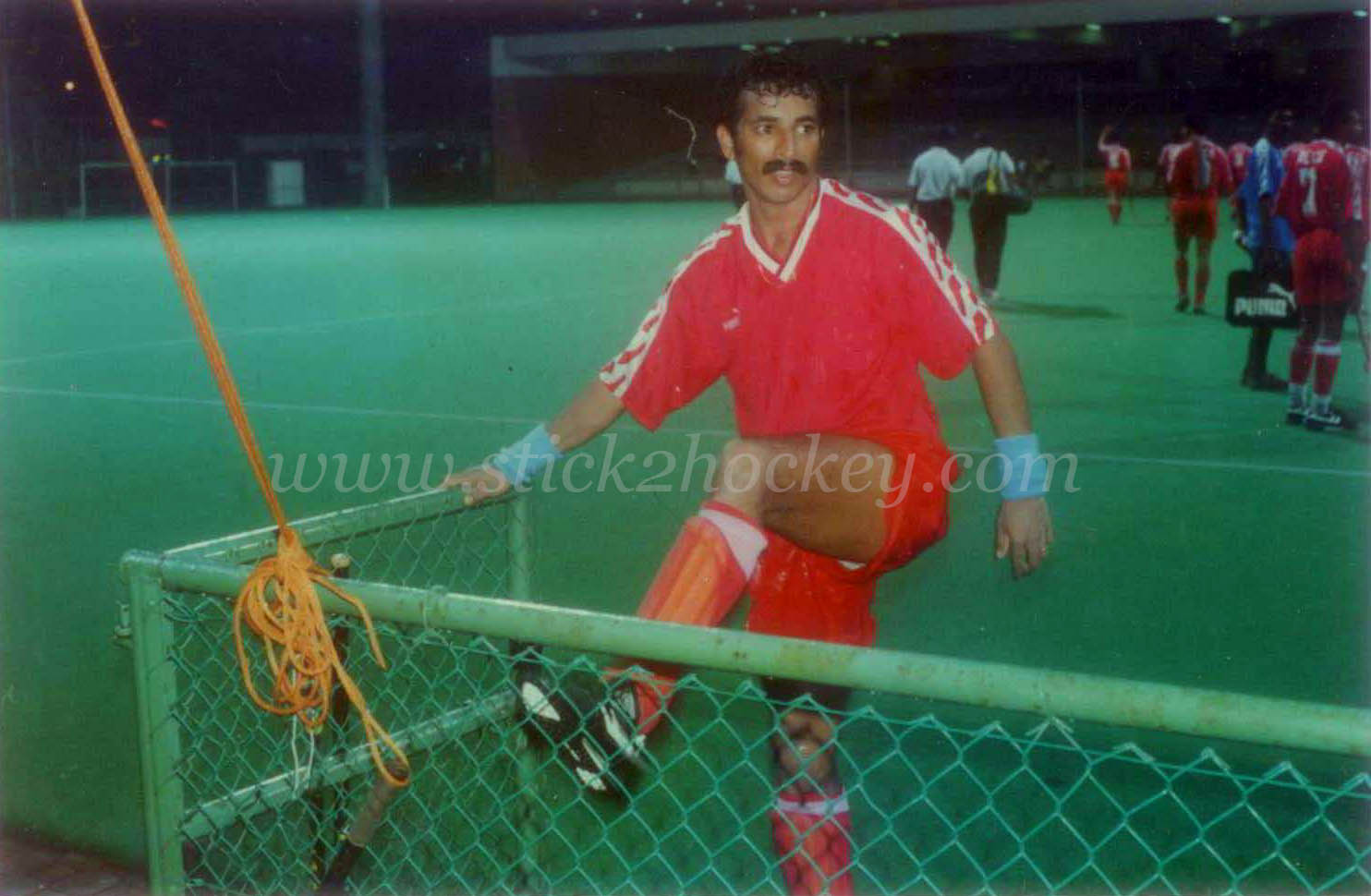
Jude playing for SRC, Singapore, 1995
Early in 1995, Jude Felix made another significant move. He went to Singapore to take up coaching at the Singapore Recreation Club (SRC). As a leading player in the country, it was bold move. With KPS Gill in his first stint at the IHF, things looked bright. However, Felix who knew the nuances and intricacies of how Indian hockey functions, chose greener pastures which provided him new avenues.
He again set the trend to bid adieu to international hockey when he could have persisted and faced the consequences like many of his contemporaries and predecessors did.
When Felix coached SRC, India ‘A’ coach Vasudevan Baskaran fought for Pargat Singh’s return and took the team to the Sultan Azlan Shah Cup. India were the defending champions and retained the trophy.
The victorious team was scheduled to play a test series against Singapore. However, only friendly matches were played. Jude Felix who was part of the 1991 team that won the Azlan Shah and who would have played this time around too but for his decision to leave India for the SRC job, played against India in the friendly. It was amid festive atmosphere, fun and frolic.
I interacted with him several times during the Singapore sojourn and many of my comprehensive interviews with him were published in Sportsworld. I spared eight pages exclusively for him in the first of the many hockey year books I authored and published in 1995.
The same year he made a quick visit to Delhi to receive the Arjuna. After receiving the award he came to the National Stadium where the Prime Minister was gracing a sporting occasion. He had difficulty in getting into the stadium as the security staff would not allow him to enter through the Air India Academy gate. Infuriated fans at the gate together impressed on the security staff that they allow Felix entry. They finally relented and Felix went in. Many, including this writer, were not that lucky.
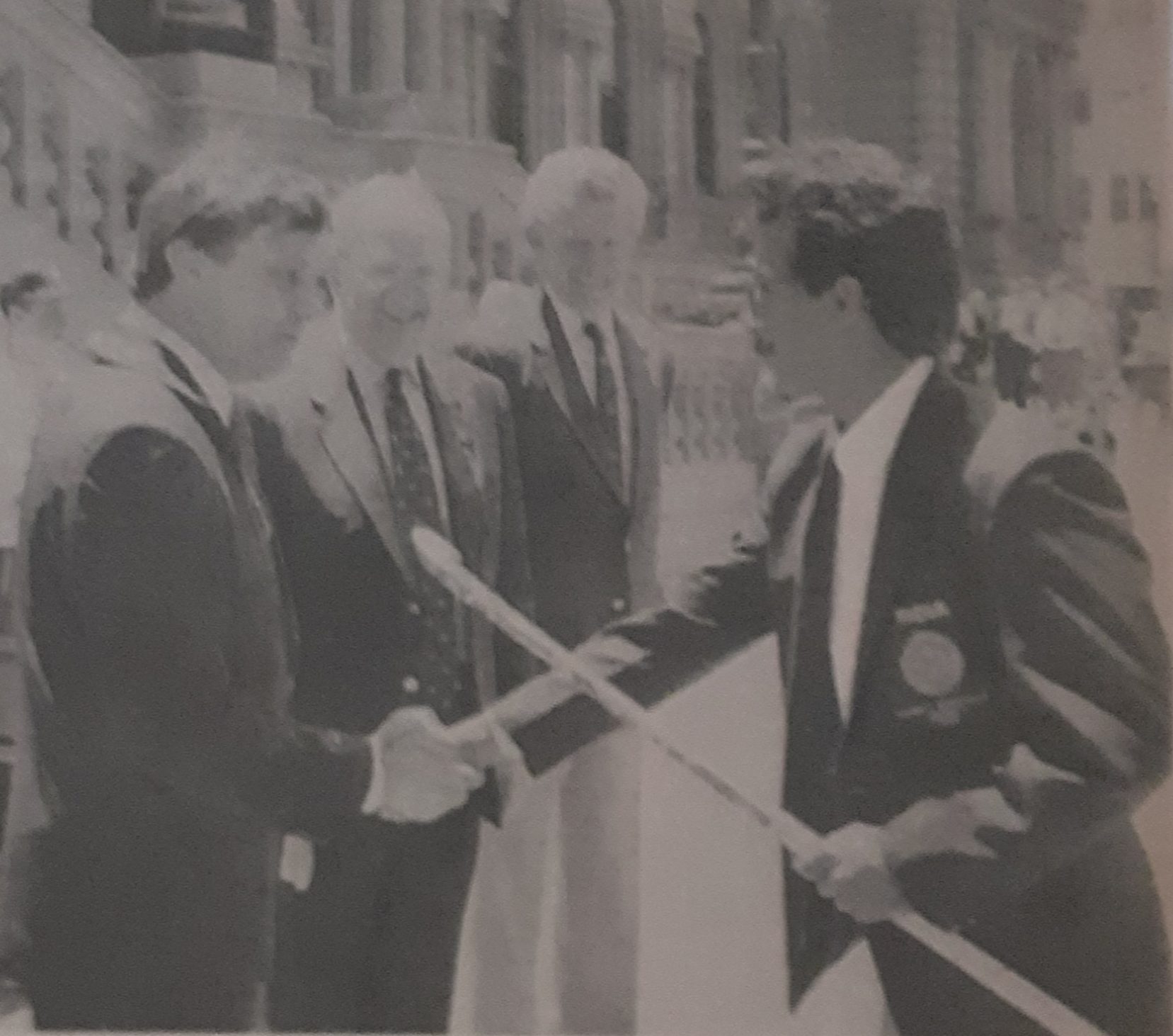
Captain Jude at the Sydney World Cup (press cutting)
Time went by. Jude returned to Bengaluru in early 2000.
He was considered fit to play in the National Championship held in South Zone. When the second leg moved to Jammu, the IHF announced him as selector as well. Midway through the Nationals in Jammu he was removed and Narinder Batra, who was the funder and organizer of the 2000 Senior Nationals, was given the job instead.
When asked for his opinion on the happening, pat came his reply: “I laughed it away”.
That’s Felix’s persona — mature and magnanimous.
I interacted with him when Malaysia and Singapore jointly hosted the 2009 Junior World Cup where he was a regular spectator for India matches in Singapore.
Felix was again in the news when he founded the Jude Felix Hockey Academy. A great effort and gesture for a player of his stature to start a charity for the sport. While most players of his generation were notorious for whining, he chose to be different. He thought of returning something to the game, that too in a systematic and proper manner, guiding scores of poor kids to a bright future.
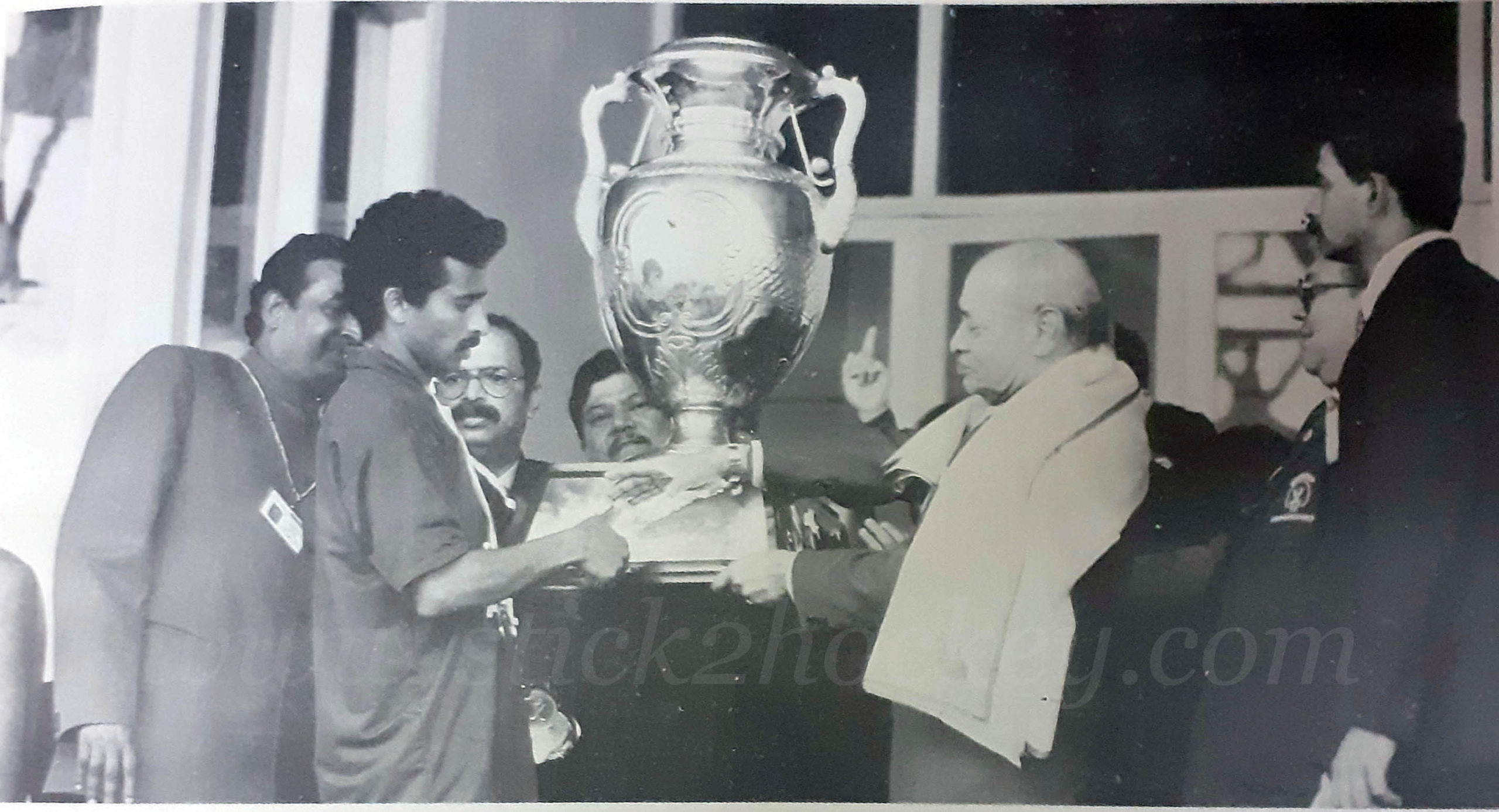
PM PV Narasimha Rao handing over the Indira Cup Silver trophy to captain Jude. This was his last international
Midway through the current decade, he was invited to be part of the national coaching team. He was first with the senior team when the likes of Stephen van Ass was at the helm.
His complaint against Gurbaj Singh in 2015 which effectively sealed his career created mixed feeling among the knowledgeable. This was against the grain of Jude Felix, who always stood by players. The last word on the issue has yet to be heard. We will wait for his memoirs one day which may have them.
Jude was subsequently put in charge of the junior team, succeeding Harendra Singh. Such appointments often ran into approval, sanction or confirmation syndromes for which Sports Authority of India and Hockey India are primarily responsible.
The world haD now changed. The shorter version of the game, the Hockey Fives, began to make inroads. Felix took up the challenge head on. His boys led by Vivek Sagar Prasad, qualified for the Buenos Aires Youth Olympic Games where India won the silver medal. But Felix wasn’t sent with the team. Instead, High Performance Director David John travelled to the Argentine capital.
This Hockey India move sealed Felix fate as coach. However, he was back and coached the colts for various assignments. Overall, his coaching stints include the Sultan of Johor Cup (2017 & 2018) as well as the Antwerp and Breda age group events. However, his services were dispensed with midway through last year.
Felix’s long career was, as incidents prove, chequered but what distinguished him from the rest was his self-confidence and his wont to choose his own path. He was presented with the top coaching award, the Dronacharya, this year but it was the self-application stipulation which surprised him.
A playing career of 14 years, followed by many years of coaching foreign clubs and intermittent stints with Indian national teams as coach…the legacy of Jude Felix lives on.



Very nice journey that made him a great player
This is a very history, this history should be known to every player of today.
The most dynamic player i hv ever herad. Amazing service sir .